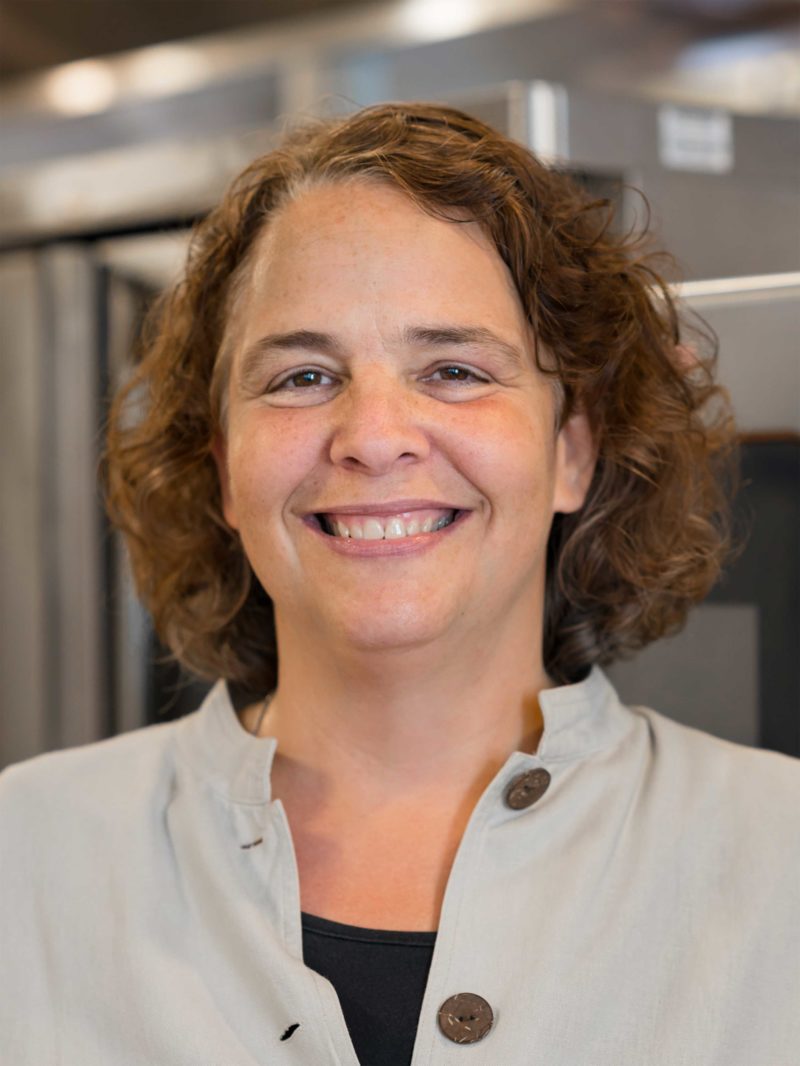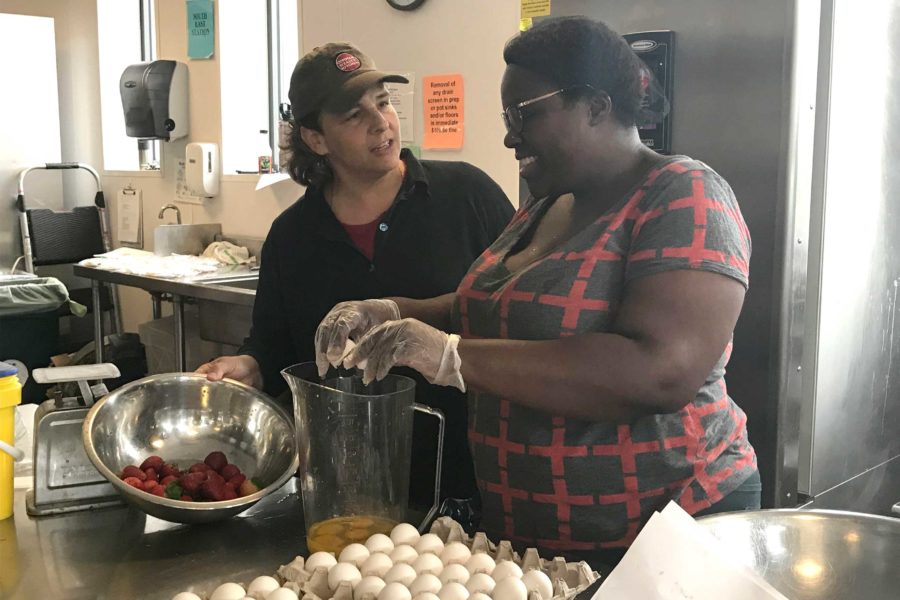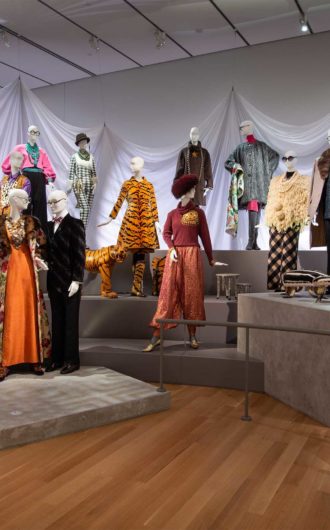An average day for 52-year-old Jen Faigel involves a lot of mental gymnastics.
In one moment, the executive director and co-founder of CommonWealth Kitchen, the nonprofit food incubator located in Dorchester, will be meeting with the director of facilities talking about cleaning issues. In the next, she’s on the phone with a potential investor talking about a significant amount of grant funding for her operation.
A former real estate consultant, Faigel saw an old, abandoned hot dog factory five years ago and turned it into a concept that is now fueling local, community-based businesses, largely women-lead and largely minority-owned.
CommonWealth Kitchen supports those looking to sell their recipes, open a restaurant or finance a food truck. The nonprofit intentionally favors those who are low-income and those from immigrant communities who want to know about the resources available to them for turning a family recipe or an idea around food into a business.
“Our reason for being is specifically working with people who have been typically left out of the system and providing opportunity,” Faigel says. “That’s largely minority, immigrant [and] low income. And, that breaks down to more women.”
The program has seen 55 to 60 companies per year since it opened in 2014 and provides kitchen space to six or seven members at a time.
Interested parties are asked to apply to work in a shared kitchen space, where competition is left at the door and collaboration and feedback is encouraged.
Classes provided by CommonWealth Kitchen teach those wanting to be in the restaurant or food truck business how to scale food correctly and bake and cook for a larger audience.
Faigel is driven to help others because growing up she knew struggle and she knew community. During her youth, she attended school in Connecticut with children from well-off families. But, she was raised by a single mother and often wound up at the community center after school where her mother worked. Her parents were divorced, her dad was living in Boston and her mother couldn’t afford a babysitter.
Her interest in helping lift others out of poverty sparked with tenant organizing while she studied at the University of Michigan — janitors at her school were struggling to afford rent.
Ultimately, she realized she had more interest in problem solving, which led her to a career in real estate, working with organizations looking to preserve affordable housing in Boston. While she was with the Jamaica Plain Neighborhood Development Corporation, she played a large role in redeveloping an abandoned brewery into what is now home to the iconic Sam Adams Brewery in Jamaica Plain.
At the time, the neighborhood development organization’s goal was to bring back jobs that were lost when the original brewery closed. A former tenant in the building named Oscar Argote had experience managing a gym, and he wanted to open his own gym. The company gave the Latino immigrant the tools he needed to achieve that goal.
This all inspired Faigel to pursue establishing a shared kitchen space at the old Pearl Meats Factory in Grove Hall. “I wanted to do more of those projects, and my organization just was not at a place where they wanted to do that work. They felt like it’s really hard, it’s really complicated, there aren’t a lot of resources for it,” she says. “For me, that was precisely why we should be doing it.”

Faigel believes being visible is a strategy that has made her successful thus far but has also contributed to her lack of a work-life balance.
To manage the chaos she deals with as executive director, she says she relies on her incredible staff and is armed with a daily planner that she keeps by her side. She also chooses not to have an office, but instead works out of a conference room that has windows for walls — meaning she’s in sight of members and employees all day, every day.
“We have some offices in the back, but it’s important for me, both from a leadership perspective and from an understanding-what’s-going-on [perspective], to be available to people when they need me,” she explains. “Lots of little changes is how we continue to be good. When we don’t pay attention is when things fall apart.”
Faigel was recently named a fellow of the Barr Foundation, an organization that supports philanthropy and builds up leaders working in the nonprofit sector. Being a fellow will allow her to go on a well-deserved, three-month sabbatical. In the meantime, she finds that the best way to cope with stress at work is when she is outside, unplugged and walking her dog.
“My days are usually pretty scheduled, so, therefore, time to think is the hardest time to find,” she says. “I have, in different points of my life, done art. I love that exercise of doing things like building stuff, or doing art projects, not because I think I’m such a great artist, [just that] the process of doing it is very zen and the time goes away. I find that it’s a different kind of meditation.”
While she is looking forward to learning more about herself as a leader and how to bring balance into her life, Faigel says she is also excited to see how her team steps up while she’s away.
“I’m a fixer. I want to fix it. So to be in a place in the organization where we can now say, ‘Hey, great. I’m out. You guys, what’s it gonna look like?,’ is super exciting [and] enormously scary. I’m excited for what that means, to be able to finally put some pieces in place and for me to start to feel like I can finally let go.”



 4 min read
4 min read


